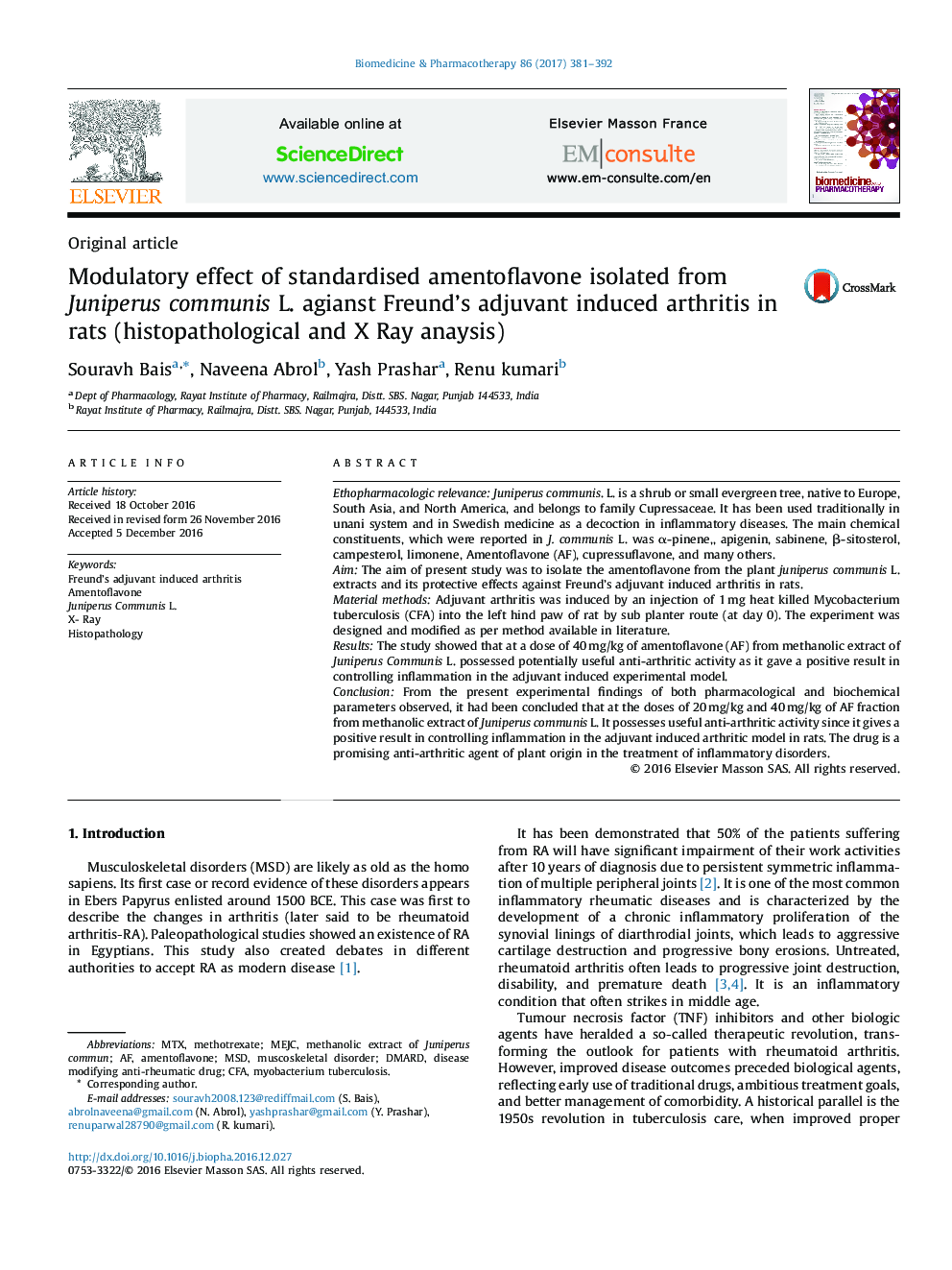| Article ID | Journal | Published Year | Pages | File Type |
|---|---|---|---|---|
| 5553554 | Biomedicine & Pharmacotherapy | 2017 | 12 Pages |
Ethopharmacologic relevanceJuniperus communis. L. is a shrub or small evergreen tree, native to Europe, South Asia, and North America, and belongs to family Cupressaceae. It has been used traditionally in unani system and in Swedish medicine as a decoction in inflammatory diseases. The main chemical constituents, which were reported in J. communis L. was α-pinene,, apigenin, sabinene, β-sitosterol, campesterol, limonene, Amentoflavone (AF), cupressuflavone, and many others.AimThe aim of present study was to isolate the amentoflavone from the plant juniperus communis L. extracts and its protective effects against Freund's adjuvant induced arthritis in rats.Material methodsAdjuvant arthritis was induced by an injection of 1 mg heat killed Mycobacterium tuberculosis (CFA) into the left hind paw of rat by sub planter route (at day 0). The experiment was designed and modified as per method available in literature.ResultsThe study showed that at a dose of 40 mg/kg of amentoflavone (AF) from methanolic extract of Juniperus Communis L. possessed potentially useful anti-arthritic activity as it gave a positive result in controlling inflammation in the adjuvant induced experimental model.ConclusionFrom the present experimental findings of both pharmacological and biochemical parameters observed, it had been concluded that at the doses of 20 mg/kg and 40 mg/kg of AF fraction from methanolic extract of Juniperus communis L. It possesses useful anti-arthritic activity since it gives a positive result in controlling inflammation in the adjuvant induced arthritic model in rats. The drug is a promising anti-arthritic agent of plant origin in the treatment of inflammatory disorders.
Graphical abstractDownload high-res image (190KB)Download full-size image
